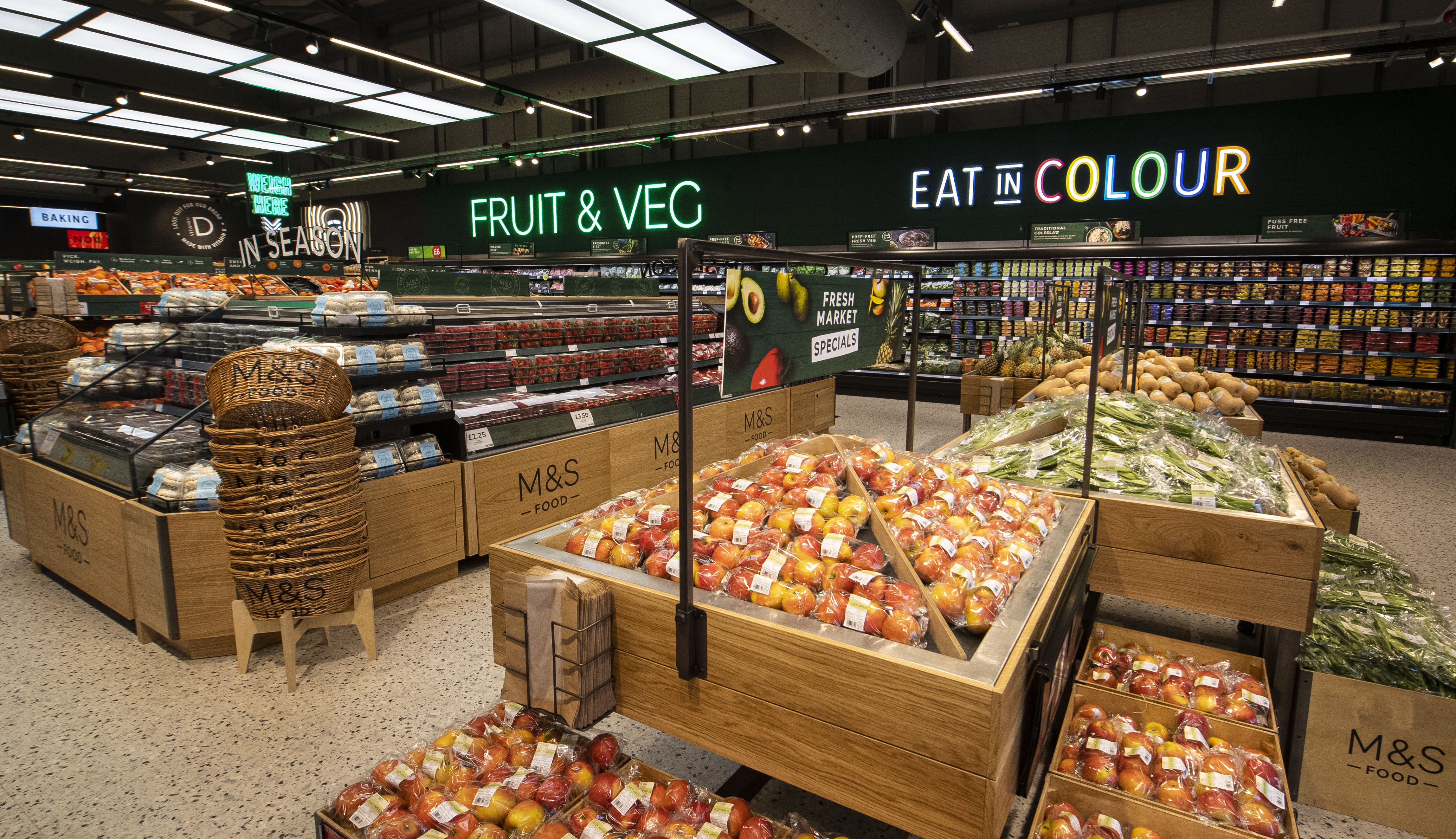Marks & Spencer (M&S) and Midcounties Co-op are eyeing technology investments to drive productivity and efficiency in their stores ahead of a 1.2 per cent increase in employer National Insurance Contributions (NICs) scheduled for 2025.
With the the increase in employer NICs costing businesses an extra £25 billion, pressure is growing for retailers to identify opportunities to boost efficiencies.
At a roundtable hosted by WorkJam, Aaron Spicer, head of retail activity and communications at M&S, shared that a particular focus will be on expanding automation solutions.
He said that some of the company’s processes have been quite manual in the past, such as the monitoring of refrigeration in the company’s stores, with check-ups and faults sometimes resulting in high costs for the multinational retailer.
“To address this, we want to support our store teams by digitising these processes through the use of alerts and automation, with panels automatically generating notifications or tasks when there is an issue,” he explained.
M&S, which owns thousands of fridges and alarms, would benefit from having an automated system that generates targeted tasks, allowing the store teams to respond to actual issues, rather than wasting time on routine checks, Spicer explained.
He added that some tests have already been rolled out for the implementation, with next steps including figuring out how to effectively integrate it with the retailer’s overall task management system.
“Refrigeration monitoring is probably the biggest area where Marks and Spencer can see significant cost savings by automating the process,” he said.
Other examples of where automation is being used include its cafes and coffee machines. M&S is seeking to implement technology to leverage similar automation and task generation capabilities, such as automatically generating cleaning tasks when they need to be serviced.
“There is significant room for further optimisation and efficiency gains by leveraging these types of technology-enabled solutions,” Spicer said.
Chris Chandler, head of store support at Midcounties Co-op, said that to mitigate the financial impact of the upcoming legislative changes, the company's strategy is to leverage automation to increase productivity.
He added that after the budget announcement, the organisation had to significantly revise its capital investment plans for next year.
“I think it's fair to say, post Budget announcement, we kind of ripped up half of our capital plans for next year,” Chandler said.
The business transformation lead explained that the company is looking to invest in more self-checkout technology to make its stores more productive.
“We are also dedicating a significant portion of our team to focus solely on identifying and implementing operational efficiencies for the next year,” he continued.
Street explained the retailer has so far done “a good job” by transitioning from manual, paper-based solutions to a more digital approach, with next steps including closely examining the activities they have digitised and determining a new series of actions.
“For example, we now need to determine how much of that activity is still necessary, how we can streamline and reduce those activities, or whether we can get the necessary information in a more efficient format,” he explained.
Chandler added plans for 2025 include finding ways to free up the retailer’s frontline workforce from tasks and administrative work.
“The aim is to enable these colleagues to focus more on delivering great customer service, as they are under increasing pressure,” he explained.
Midcounties Co-op is also currently looking to explore opportunities for partnerships and new business models, such as quick commerce, which is a rapidly growing area for the firm.
Latest News
-
Asos launches new hybrid virtual try-on service
-
Unilever taps Google Cloud to advance agentic commerce and tech capabilities
-
Waitrose renews contract with POS provider
-
Very Group secures long-term funding agreement
-
Topshop returns to UK High Streets through John Lewis partnership
-
Asda names B&Q marketing executive to lead brand strategy
Beyond Channels: Redefining retail with Unified Commerce
This Retail Systems fireside chat with Nikki Baird, Vice President, Strategy & Product at Aptos will explore how unified commerce strategies enable retailers to tear down these barriers and unlock new levels of operational agility and customer satisfaction.
The future of self-checkout: Building a system that works for consumers and retailers
In this webinar, industry leaders discussed what the future of self-checkout looks like and how retailers can make the technology work for everyone.
© 2024 Perspective Publishing Privacy & Cookies



.jpeg)






Recent Stories